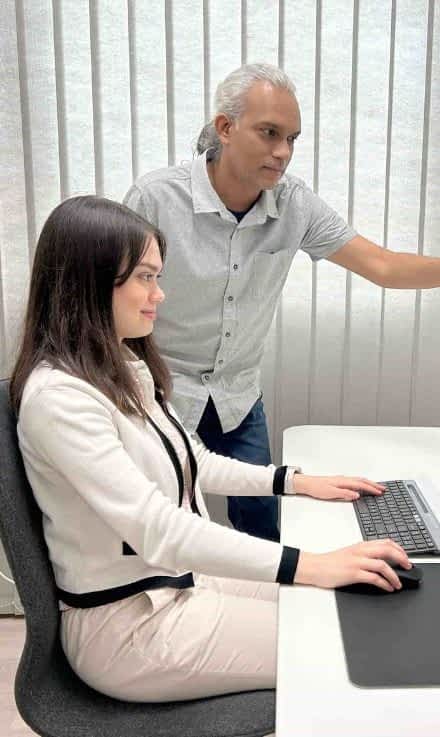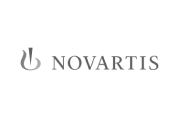Workplace Wellness Programs in Singapore
Wellness Courses for Desk Workers
Musculoskeletal disorders (MSDs) are the most common ailments in the workplace, leading to absenteeism, lost productivity, reduced work quality, higher turnover and increased healthcare costs. They are also commonly linked to depression and increased risk of developing chronic diseases.
Let’s reverse this trend together.
MSD issues are real. The situation is dire - if we do nothing about it.
Therapeutic massage is a treatment modality involving the manipulation of muscles and tissues to relieve pain and tension. Often, when pain is experienced in one part of the body, its source is located elsewhere, making diagnosis and treatment challenging. Therapeutic massage, rooted in modern science, focuses on identifying and relieving fatigued muscles that cause pain.
This three-part workplace wellness program in Singapore introduces therapeutic self-massage to help participants manage musculoskeletal discomfort.
1: Self-massage for neck and shoulder pain
2: Self-massage for lower-back pain
3: Self-massage for upper-limb pain
- 75min Workshop for up to 30 pax
- 5min Booth Activity for 100’s pax
Functional exercise is a type of strength and conditioning training that prepares our body for activities of daily living. While therapeutic massage addresses pain symptoms, functional exercise counters muscle weakness, imbalance or misalignment.
This three-part workplace wellness program in Singapore introduces functional exercise as intervention for common musculoskeletal disorders experienced by desk workers. Participants acquire techniques to build core strength, improve posture and stability, and protect muscles and joints from injury.
1:Exercises to improve upper-back posture
2:Exercises to improve lower-back posture
3:Exercises to improve upper-limb functionality
60min workshop, virtual or physical
No. of participants: Up to 30
Poor working posture has long been singled out as the main contributor of workplace-related musculoskeletal disorders amongst office workers. As employees continue to work from home or adopt hybrid working arrangements, organisations must, more than ever before, provide support for the practice of sound ergonomics.
Our ergonomics talks and workshops complement wellness programs in Singapore by considering workspace design, user behaviour and task design to promote good work posture and habits. Although originally meant for computer uers, the content can be adapted to any form of desk work.
1: Setting up and using your workspace ergonomically
2: Fight the sitting disease before it kills you
- 75min Workshop for up to 30 pax
- 60min Talk for up to 100 pax
- 5min Booth Activity for 100’s pax
Benefits of Musculoskeletal
Workplace Wellness Programs in Singapore

Improved Comfort
Proper ergonomic adjustments reduce physical discomfort, helping employees feel more at ease throughout their workday.

Increased Productivity
By creating comfortable workspaces, workplace wellness programs in Singapore can enhance focus and efficiency, leading to boosted productivity.

Reduced Injury & Risk
These programs help prevent musculoskeletal disorders and other work-related injuries, minimising downtime and medical costs.

Enhanced Employee Well-being
Addressing physical strain and promoting better posture through workplace wellness programs in Singapore leads to greater overall health and well-being.

Lower Absenteeism
Fewer injuries and less discomfort result in reduced sick days, contributing to a more consistent and reliable workforce.

Improved Job Satisfaction
Employees who feel their well-being is prioritised through these programs are likely to be more satisfied with their jobs and engaged in their work.

Cost Savings
Reducing work-related injuries and health issues can lead to lower healthcare and workers' compensation costs for companies participating in workplace wellness programs in Singapore.

Positive Work Environment
These wellness programmes foster a supportive and health-conscious culture, enhancing team morale and collaboration.
Why Choose Aleyda Academy
for Workplace Wellness in Singapore
Aleyda Academy is the leading choice for workplace wellness programs in Singapore as we offer tailored solutions that promote better musculoskeletal health to boost overall productivity for your team.

01
02
03
04
01
Expertise in Ergonomics
Aleyda Academy offers specialised knowledge and practical solutions to optimise workspace ergonomics, ensuring your workplace wellness program is both effective and tailored to your needs.
02
Customised Programs
Our wellness programs are designed to fit the unique requirements of your organisation, whether for traditional office environments or remote settings, ensuring comprehensive coverage.
03
Proven Results
With a track record of enhancing employee comfort, productivity, and overall well-being since 2020, Aleyda Academy has consistently delivered impactful and measurable improvements.
04
Local Expertise
As a provider of workplace wellness programs in Singapore, we understand the local workforce’s specific challenges, providing relevant and effective solutions.
Select Corporate Clients








